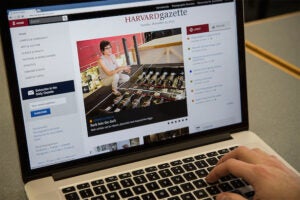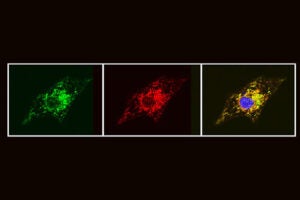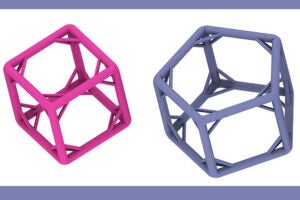Tag: Wyss Institute
-
Nation & World
RoboBees can perch to save energy
A RoboBee equipped with an electrode patch is supplied with a charge, allowing it to stick to almost any surface, from glass to wood to a leaf. The patch requires about 1,000 times less power to perch than it does to hover, extending the operational life of the robot.
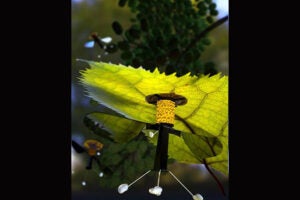
-
Nation & World
Plants with biosensors may light the way
A team of researchers from the Wyss Institute and Harvard Medical School has developed a new method for engineering a broad range of biosensors to detect and signal virtually any desired molecule using living eukaryotic cells. Its applications could range from detecting hormones to benefiting agriculture.
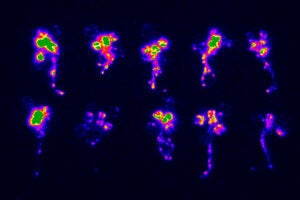
-
Nation & World
‘The Trouble with Jellyfish’
A video showcases “The Trouble with Jellyfish,” a new exhibition at Le Laboratoire Cambridge that spotlights a growing crisis beneath the sea.
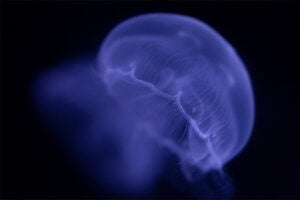
-
Nation & World
Filling a void in stem cell therapy
New porous hydrogel could boost success of some stem cell-based tissue regeneration, researchers say.
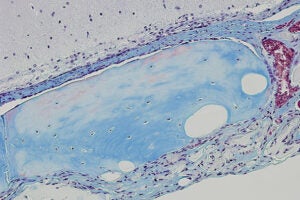
-
Nation & World
Wyss improves sepsis device
Scientists at the Wyss Institute have improved a device developed last year to treat sepsis that works by mimicking the human spleen. The new device is better positioned for near-term use in clinics.
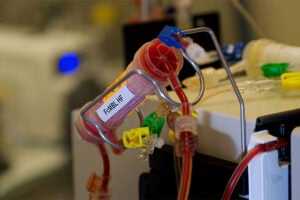
-
Nation & World
Bacteria ‘factories’ churn out valuable chemicals
A team of researchers led by Harvard geneticist George Church at the Wyss Institute for Biologically Inspired Engineering and Harvard Medical School has made big strides toward a future in which the predominant chemical factories of the world are colonies of genetically engineered bacteria.
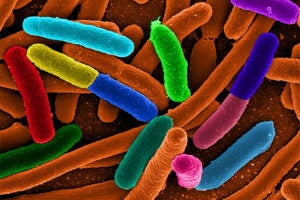
-
Nation & World
Cutting the cord on soft robots
Researchers at Harvard’s School of Engineering and Applied Sciences and the Wyss Institute for Biologically Inspired Engineering have developed the world’s first untethered soft robot — a quadruped that can stand up and walk away from its designers.
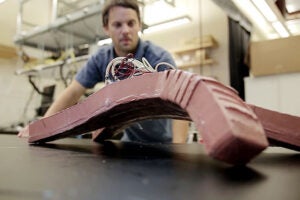
-
Nation & World
Cancer vaccine begins Phase I clinical trials
A cross-disciplinary team of Harvard scientists, engineers, and clinicians announced Sept. 6 that they have begun a Phase I clinical trial of an implantable vaccine to treat melanoma, the most lethal form of skin cancer.
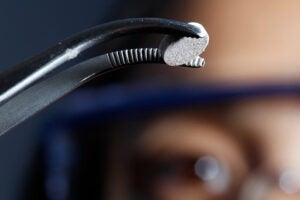
-
Nation & World
Lung-on-a-Chip wins prize
Wyss Institute Founding Director Donald Ingber received the NC3Rs 3Rs Prize from the U.K.’s National Centre for the Replacement, Refinement, and Reduction of Animals in Research for his innovative Lung-on-a-Chip.
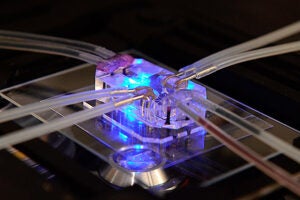
-
Nation & World
New professor for SEAS, Wyss
Jennifer A. Lewis, an internationally recognized leader in 3-D printing and biomimetic materials, has been appointed as the first Hansjörg Wyss Professor of Biologically Inspired Engineering at the Harvard School of Engineering and Applied Sciences and as a core faculty member of the Wyss Institute for Biologically Inspired Engineering at Harvard University.
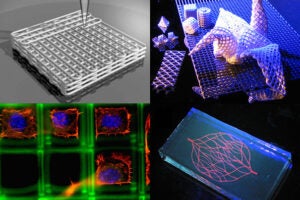
-
Nation & World
Donald Ingber wins 2011 Holst Medal
Donald Ingber, the Judah Folkman Professor of Vascular Biology at Harvard Medical School and founding director of the Wyss Institute for Biologically Inspired Engineering, has been awarded the 2011 Holst Medal.
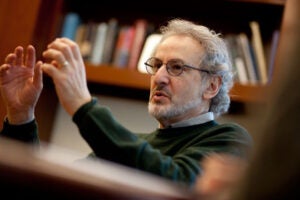
-
Nation & World
Progress in quantum computing
Engineers and physicists at Harvard have managed to capture light in tiny diamond pillars embedded in silver, releasing a stream of single photons at a controllable rate.
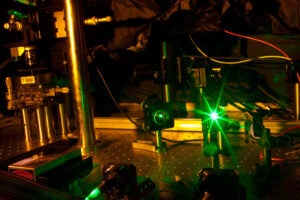
-
Nation & World
Wyss Institute project targets sepsis
The Wyss Institute for Biologically Inspired Engineering at Harvard has been awarded a $12.3 million, four-year grant from the Defense Advanced Research Projects Agency to develop a treatment for sepsis, a commonly fatal bloodstream infection.
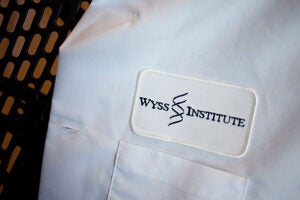
-
Nation & World
Early excellence, rewarded
Two young Harvard scientists will each receive $2.54 million or more in National Institutes of Health grants that will support research and overhead costs through a new program intended to accelerate the entry of outstanding junior investigators into independent researcher positions.
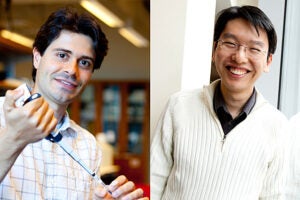
-
Nation & World
A smarter Harvard marketplace
An online procurement system rolls out across Harvard, saving the University $5.4 million in its first year and making life a little easier for thousands of researchers and administrators.
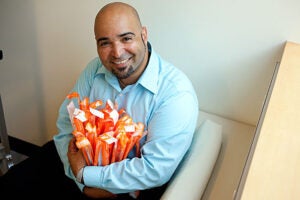
-
Nation & World
What’s behind the predictably loopy gut
Between conception and birth, the human gut grows more than two meters long, looping and coiling within the tiny abdomen. Within a given species, the developing vertebrate gut always loops into the same formation — however, until now, it has not been clear why.
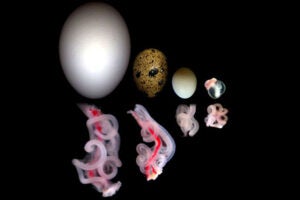
-
Nation & World
A provost’s view across a decade
Steven E. Hyman, who is stepping down after leading Harvard’s sweeping expansion into interdisciplinary research, recalls the challenges and changes of his long tenure.
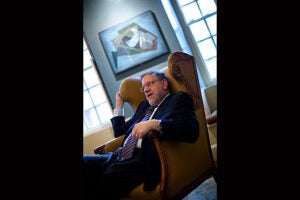
-
Nation & World
Looking ahead
He’s an economist, a researcher, and a physician, and he’s about to become provost. On the day (April 15) that President Drew Faust announced that he would be Harvard’s next provost, Alan M. Garber ’76 sat down with the Gazette to talk about his career, his new role, and facilitating connections across traditional academic boundaries…
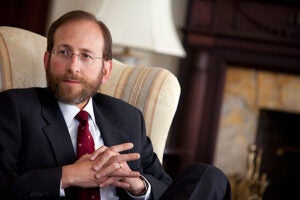
-
Nation & World
AIMBE inducts Ingber to College of Fellows
The Wyss Institute for Biologically Inspired Engineering at Harvard University announced on Feb. 4 that its founding director, Donald E. Ingber, has been inducted into the American Institute for Medical and Biological Engineering’s College of Fellows.
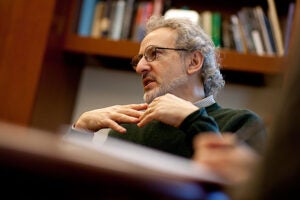
-
Nation & World
Squeezing life into patients
Engineers at Duke and Harvard universities have developed a “magnetic sponge” that after implantation into a patient can “squeeze” out drugs, cells, or other agents when passed over by a magnet.
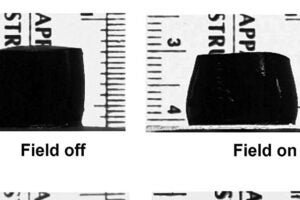
-
Nation & World
New facilities for Wyss Institute
Harvard’s Wyss Institute for Biologically Inspired Engineering officially opens new, expansive facilities in Boston and Cambridge to host its fast-growing enterprise.
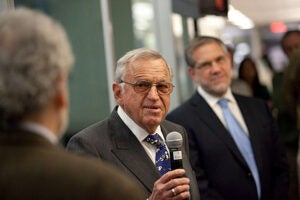
-
Nation & World
Science programs advancing
Harvard President Drew Faust today renewed the University’s commitment to the vision of advancing interdisciplinary, collaborative science in general, and the Department of Stem Cell and Regenerative Biology (SCRB), the Harvard Stem Cell Institute (HSCI), and the Wyss Institute for Biologically Inspired Engineering (WIBIE) in particular.
-
Nation & World
Hansjörg Wyss gives $125M to create institute
Engineer, entrepreneur, and philanthropist Hansjörg Wyss, M.B.A. ’65 has given Harvard University $125 million to create the Hansjörg Wyss Institute for Biologically Inspired Engineering.



